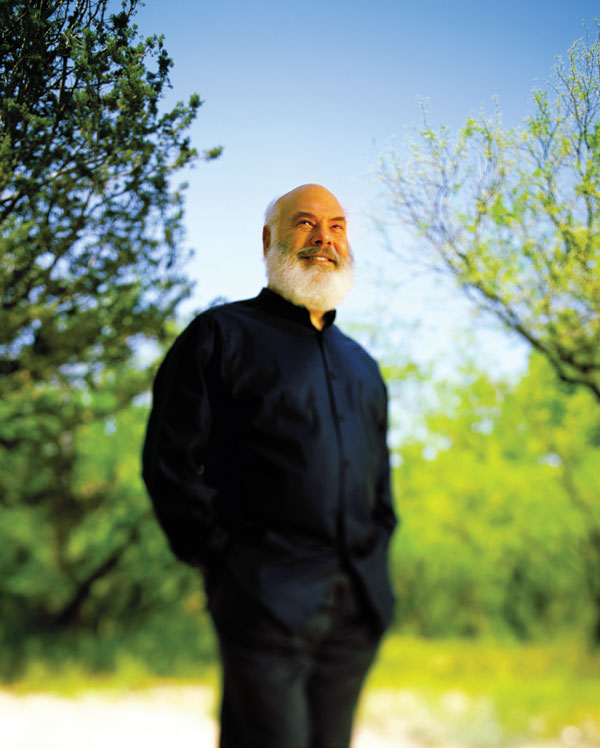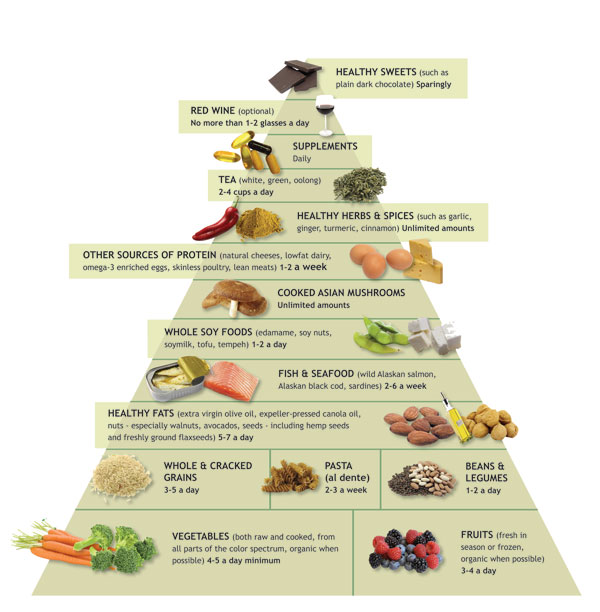BY TISHIN DONKERSLEY, M.A.

Inflammation can occur in any part of the body, from our sinuses, muscles and skin to our internal organs. In many cases there is no need for concern, but recurring inflammation can begin to break down the immune system, leading to many serious diseases.
According to an NPR interview with Dr. Peter Libby, Mallinckrodt Professor of Medicine from Harvard Medical School and Chief of Cardiovascular Medicine at Brigham and Women’s Hospital, “The immune and inflammatory response is very important in our usual defenses against invaders and repair of injury, but it can get turned against us when it’s deployed inappropriately or [when inflammation continues].”
The rise of chronic inflammation cases is one to take notice of, as it is often intricately intertwined with our own lifestyle choices and unique environments, and can dictate our healthy (or unhealthy) path. According to an article from Harvard Medical School, “Chronic low-grade inflammation is intimately involved in all stages of atherosclerosis… and sets the stage for heart attacks, most strokes, and even vascular dementia.”
Dr. Andrew Weil, a world-renowned expert in integrative medicine said that, along with stress, environmental toxins, genetics and second-hand smoke, diet has a huge impact on the body’s inflammatory status. His anti-inflammatory diet provides a comprehensive dietary guideline, highlighting simple dietary changes people can make to optimize nutrition and counteract chronic inflammation and the serious diseases it enables. Weil says, “The current growing body of evidence suggests that it’s chronic, low-level, imperceptible inflammation throughout the body that eventually creates the foundation for these age-related diseases.”
How does inflammation occur in the body?
”Good” inflammation occurs as the body’s defense against bacteria, viruses, and foreign bodies, and to repair damaged tissues. Such inflammatory responses tend to local, and of limited duration. On the flip side, inflammation is also the body’s response to many irritants we expose ourselves to such as smoking, high-fat and high-caloric diets, processed foods, environmental toxins, alcohol and medications. Dr. Weil explains, “inflammation is so powerful… so potentially destructive that the body has very complex mechanisms that ensure it stays where it’s supposed to stay, and ends where it’s supposed to end.”
What happens if inflammation lingers?
A study conducted by Yale University School of Medicine to understand the connection between the inflammatory response and cancer concluded that inflammation has long been associated with the development of cancer. The research stated that “long-standing inflammation secondary to chronic infection or irritation predisposes to cancer… [and] chronic inflammation states associated with infection and irritation may lead to environments that foster genomic lesions and tumor initiation.”
What are symptoms of inappropriate inflammation?
According to the Cleveland Clinic, symptoms of for inflammation of internal organs could include shortness of breath, swelling of the leg, asthma attacks, high blood pressure, cramps or diarrhea. Other signs of inflammation, as it relates to diseases, could be joint pain, redness, swelling, hot spots or flu-like symptoms.
Anti-inflammatory diet
In order to prevent or manage inflammation one needs to focus on nutrition. Dr. Weil developed an anti-inflammatory diet to assist in the prevention of chronic inflammation, reduce risks of age-related diseases, and guide people toward a healthy, and nutritionally balanced diet. Utilizing his medical education from Harvard University and real-world health and wellness experience, Dr. Weil has inspired many. He has written many New York Times
best-selling books on nutrition, founded the Program in Integrative Medicine (now the Arizona Center for Integrative Medicine) at University of Arizona, and was the nutritional architect behind True Food Kitchen, community-based restaurants that use local, organic ingredients and adhere to the principles of Dr. Weil’s anti-inflammatory diet.
Dr. Weil indicates that most adults are consuming 2,000-3,000 calories a day and, based on his recommended distribution of calories, one should carve up their diet with 40 to 50 percent carbohydrates, 30 percent from fat and 20 to 30 percent from protein. The fundamentals of the anti-inflammatory diet include boosting fruit and vegetable intake, seeking out fresh food, avoiding refined sugars, eating healthy fats from extra-virgin olive oil and cold-water, oily fish such as wild-caught salmon, choosing foods high in antioxidants and omega-3 fatty acids, and decreasing processed foods.

Dr. Weil’s anti-inflammatory food pyramid provides a yellow brick road to a healthier you. Each level was designed to benefit your body, and decrease your risk for disease.
Starting at the top level…thank goodness for some healthy sweets! (but they must be few and far between.) If you choose to indulge with chocolate, he recommends dark chocolate as it contains polyphenols with antioxidant properties.
Second tier—red wine! A study conducted by the American Heart Association showed “a 32 percent risk reduction of atherosclerotic disease with red wine intake, which was greater than the 22 percent risk reduction for beer consumption.” If one chooses to drink, Dr. Weil recommends organic red wine and no more than one to two glasses per day.
What else to do during the day? Take your vitamins! Dr. Weil encourages supplements that, depending on an individual’s circumstances, may include antioxidants, co-enzyme Q10, distilled fish oil and vitamin D3. Additionally, instead of that cup of java in the morning, try tea. Dr. Weil highlights that tea, whether it be white, green or oolong, contain antioxidants that can reduce inflammation.
Ever thought about growing an herb garden? Turmeric, garlic, ginger, rosemary and thyme are just some of the herbs that contain anti-inflammatory properties. Dr. Weil suggests using them in your daily dishes.
Dr. Weil suggests one or two servings of protein every day, including high-quality cheeses and yogurts, and grass-fed lean meats. Asian mushrooms, including Shiitake, enokidake, maitake, oyster and wild mushrooms, are a favorite for this diet because they can build up the immune system but Dr. Weil recommends minimizing commercial button mushrooms, and avoiding raw mushrooms altogether.
Whole soy foods show up in Dr. Weil’s pyramid too—one to two servings per day of tofu, tempeh, edamame, soy nuts or soy milk are recommended. According to an article on MSNBC.com by Natasha Allen, a recent study stated that “post-menopausal breast cancer survivors in the study who consumed the most soy isoflavones, around 42.3 milligrams a day, had a considerably decreased risk of recurrence of their breast cancer compared with those who consumed the least, around 15.2 mg a day.” Omega-3 fish oil from salmon and other cold-water fish have been indicated to reduce the risk for heart disease and slightly lower blood pressure. Dr. Weil encourages two to six servings of fish during the week, rich in omega-3 fats, such as Wild Alaskan salmon, herring, sardines or black cod.
For healthy fats from foods such as like wild-caught fish, nuts, oils and seeds, to grains, pasta and beans, the goal is to choose pure ingredients. Look for foods high in omega-3 fats, intact (not pulverized) grains that digest slowly such as brown rice, buckwheat or steel-cut oats, and beans rich in folic acid, magnesium, potassium and soluble fiber.
The foundation of Dr. Weil’s anti-inflammatory diet pyramid is fruits and vegetables. People need to eat a lot more of them. He emphasizes the importance of coloring up your plate with more fruits and vegetables. He says certain fruits and vegetables are rich in flavonoids and carotenoids and possess both antioxidant and anti-inflammatory qualities. Fruits such as raspberries, blueberries, strawberries, apples and pears, among others, are recommended, as well as cruciferous vegetables, dark leafy greens, onions, and raw salad greens.
In addition to following the anti-inflammatory food pyramid, Dr. Weil recommends drinking water throughout the day, which is necessary for the overall functioning and cleansing of the body, and avoiding products made with high-fructose corn syrup. And for you cooks out there, he suggests high-quality olive oil, because it has the highest percentage of heart healthy monounsaturated fat of any edible oil.
In a recent interview, Dr. Weil had the following to say about trends in the American food landscape: “The growth of organic agriculture is very heartening. There are more farmers’ markets now, healthier foods in schools, and better availability of high-quality foods in general. I do see some very positive signs.”
To learn more about the Anti-inflammatory Diet, visit drweil.com and read his book Healthy Aging. He also explores the relationship between inflammation and mental health in his newest book, Spontaneous Happiness, which will be available November 8, 2011.
“Following an anti-inflammatory diet can help counteract the chronic inflammation that is a root cause of many serious diseases, including those that become more frequent as people age. It is a way of selecting and preparing foods based on science that can help people achieve and maintain optimum health over their lifetime.” – Andrew Weil, M.D.
, Founder and Director, Arizona Center for Integrative Medicine, University of Arizona Health Sciences Center, and Director, Integrative Health and Healing Program, Miraval Life in Balance Resort







“Dr. Weil’s Anti-inflammatory Diet | Green Living” was in fact a wonderful article. In case it possessed a lot more pics it would probably be quite possibly far better. Thanks ,Lucio
Thanks! We will take that into consideration into the future!
One of the most interesting advocates of natural health in recent years has been Dr. Andrew Weil. This article is a very basic outline of his philosophy about inflammation and how to eat a diet that is designed to help us avoid any type of inflammation.
The major problem with almost any type of inflammation is that it can begin to break down our immune system. The article continues by pointing out the fact that this leads to the body being more susceptible to disease and sickness and less able to fight these problems at the same time.
One of the points that I found extremely interesting here is the fact that studies have shown inflammation to be a forerunner and associated with the development of cancer. It follows then, that if we are to eat a diet designed at reducing this bad type of inflammation, then we have an excellent chance of avoiding many types of cancers.
I also think that many of us are probably following a diet right now that is counter to many of the principles of the program laid out here by Dr. Weil. It is important to keep in mind some of the signs of inflammation in the body. As the author points out, these can include (among other things) shortness of breath, swelling of the leg, asthma attacks, high blood pressure, cramps, diarrhea, joint pain, redness and even flu-like symptoms.
Great article. I will be giving copies of the ant-inflammatory food pyramid to my clients.
I will start drinking more tea!
“he recommends dark chocolate as it contains polyphenols with antioxidant properties” I love this!!!!
thanks for the great information
yes, he said to use chocolate–but sparingly! I knew it was too good to be true!